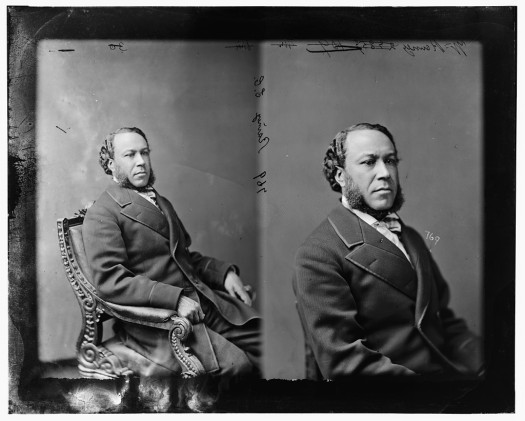
“If the colored people of South Carolina had been accorded the same advantages—if they had had the same wealth and surroundings which the gentleman from New York has had, they would have shown to this nation that their color was no obstacle to their holding positions of trust, political or otherwise. Not having had these advantages, we cannot at the present time compete with the favored race of this country; but perhaps if our lives are spared, and if the gentleman from New York and other gentlemen on that side of the House will only accord to us right and justice, we shall show to them that we can be useful, intelligent citizens of this country. But if they will continue to proscribe us, if they will continue to cultivate prejudice against us; if they will continue to decry the Negro and crush him under foot, then you cannot expect the Negro to rise while the Democrats are trampling upon him and his rights. We ask you, sir, to do by the Negro as you ought to do by him in justice.” — Congressman Joseph H. Rainey, “Speech Made in Reply to An Attack Upon the Colored State Legislators of South Carolina…” (1871)
Joseph Hayne Rainey was born on June 21, 1832 in Georgetown, South Carolina. A former slave, he was the first African-American to serve in the U.S. House of Representatives (1870-79). During the American Civil War he was forced to work on the fortifications in Charleston harbor but managed to escape to the West Indies, where he remained until the end of the war in 1865. He amassed great wealth from his work as a barber and his wife Susan’s work as a dressmaker in St. Georges and then Bermuda.
Upon his return to South Carolina, during the Reconstruction era, Rainey was a delegate to the state constitutional convention (1868) and served briefly in the state Senate. Elected to the U.S. House of Representatives in 1870, he was re-elected four times, the longest tenure in the House of any Black during the Reconstruction era. While in office he dedicated himself to the passage of civil rights legislation, pressing the interests not only of Blacks but also of other minorities, including Native Americans and the Chinese in California.
The Akosua Report: Facts on The African Diaspora, is written by Akosua Lowery. Follow her on Twitter @AkosuaLowery.
Like The Burton Wire on Facebook. Follow us on Twitter @TheBurtonWire.







